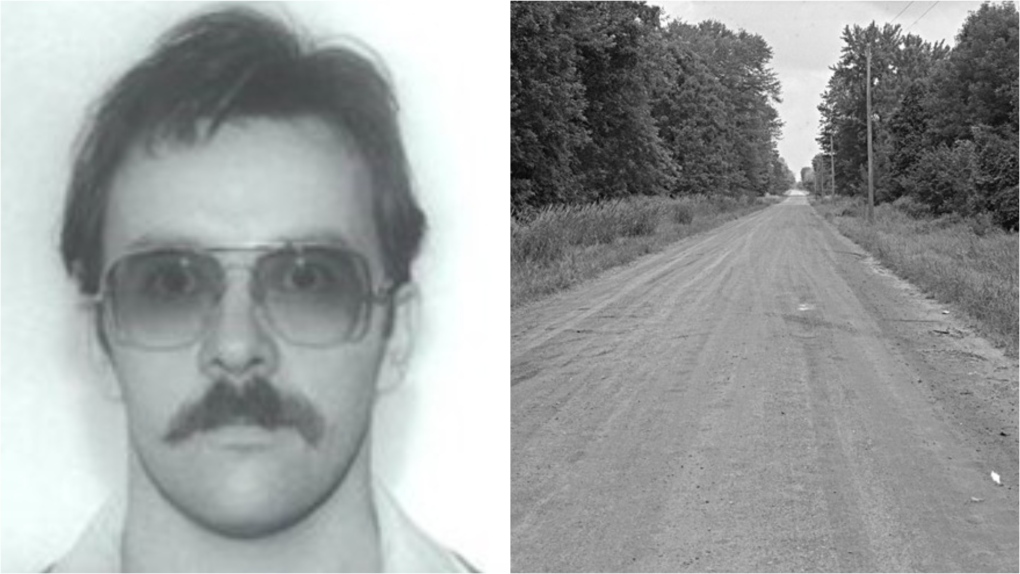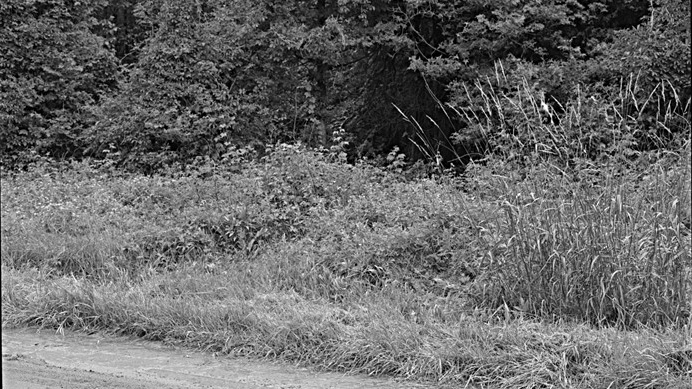Cold case that puzzled Toronto-area police for nearly half a century cracked. Here's how they did it
 William Joseph Pennell is seen in this undated image. (York Regional Police)
William Joseph Pennell is seen in this undated image. (York Regional Police)
For nearly 45 years, the identity of the human remains found along a rural road north of Toronto remained a mystery.
It was on July 16, 1980, when a Markham, Ont. resident made the discovery near a wooded area on Eleventh Concession, between 14th and Steeles avenues. Unbeknownst to them, the remains belonged to William Joseph Pennell, a convict who had escaped a Kingston prison a month earlier.
York Regional Police previously announced that investigators had identified the remains in 2023 after the case stayed cold for decades. They said that investigative genetic genealogy (IGG) held the key to linking the body to Pennell after investigators positively identified his relatives.
But how did they do it? CTV News Toronto spoke with Othram, a Texas-based forensics company that assisted police in making the identification, to learn more about the process.
Collecting evidence
Pennell’s remains were first exhumed in 2007 by cold case investigators in an attempt to create a facial reconstruction and to obtain DNA, police said. A year later, a DNA profile was developed and uploaded to the national DNA database, but there were no matches.
Investigators then turned to IGG in 2021 and contacted Othram in The Woodlands, Texas in 2022 for help with the case.
“Othram received skeletal evidence, and the first thing that we need to do is we need to extract DNA from bone. And so we did that,” the company’s chief of staff, Colby Lasyone, told CTV News Toronto in an interview earlier this week.
Lasyone said the team then worked to develop a new DNA profile that York Regional Police used to upload into a database and cross reference with profiles on certain family tree websites before eventually finding a match.
“If you've done a genealogy test with a consumer genealogy testing company, you have to actually upload your DNA profile into a database. There are specific databases where law enforcement actually can query those databases. And so in order for forensic genetic genealogy to be done in a case, we can only match against databases where individuals have consented specifically for law enforcement to do so,” Lasyone explained.
 Human remains found by a Markham, Ont. resident on July 16, 1980 have been identified as William Joseph Pennell. (York Regional Police)
Human remains found by a Markham, Ont. resident on July 16, 1980 have been identified as William Joseph Pennell. (York Regional Police)
This isn’t the first time Othram has been involved in cracking a cold case in the Greater Toronto Area. In 2019, the company assisted Toronto police in identifying Joseph George Sutherland as a suspect in the 1983 killings of Erin Gilmour, the daughter of a wealthy Toronto businessman, and Susan Tice, a mother of four. Both women were killed inside their homes and both cases remained cold for nearly 40 years. Sutherland was sentenced to life in prison earlier this year.
“Genealogy was one time a hobby if you will, and then it was used to help locate adoptive families. And now, this application of genealogy, from a forensic perspective, allows for the identification of relatives that ultimately help to narrow down the name of individuals who have died without their identity being known, or even individuals who are suspects in a crime," Lasyone said.
'A huge benefit to police'
Chris Lewis is the former commissioner of the Ontario Provincial Police and said recent advancements in genetic genealogy for the purposes of solving cold cases mark a turning point in the way those cases are investigated.
“Years ago, in the 80s and 90s, in the early days of DNA, you had to have a sample from a crime scene, and then, of course, a sample from a suspect to try and match them in some way,” Lewis, who is CTV News’ Public Safety Analyst, said in an interview. He was not involved in the identification of Pennell’s remains.
“But now, you have the ability to identify people, unidentified human remains, etc, through this genetic approach and ultimately through a huge database that's been developed since,” Lewis said, calling the investigative tool “a huge benefit to police.”
 The wooded area in Markham, Ont. where William Joseph Pennell's remains were found on July 16, 1980, is seen in this image.
The wooded area in Markham, Ont. where William Joseph Pennell's remains were found on July 16, 1980, is seen in this image.
He said it’s likely cold cases will still exist, specifically in situations where no suspect or suspect DNA is identified at the scene. But in cases where police can make a forensic link to a person who was at the scene other than the victim or when human remains are unidentified, therein lies a big advantage for investigators.
“Police services all over Canada have been reviewing those old, so-called cold cases to see if the technology has developed to the point now that we can use it…and a lot of old, previously unsolved cases are being looked after because of the science.”
Who was William Joseph Pennell?
Pennell had spent time in several correctional institutions for a variety of criminal offences and was arrested for armed robbery and attempted murder on June 30, 1979, while out on parole, police said in a news release issued earlier this month.
After he was charged, Pennell was sent to the Collins Bay Institution in Kingston.
Police said Pennell admitted to his role in the crime and said there were at least two other people involved. However, he refused to implicate them as he believed his life was in danger.
Pennell was convicted of the robbery in April 1980. Two months later, he escaped from prison. To this date, no detailed records about the escape have been located.
While the details of his escape remain unclear, police said Pennell told a friend he intended to flee to South America. Police believe that was Pennell’s last contact before his death.
Pennell’s cause of death was never determined, but investigators believe foul play was involved.
The investigation into Pennell’s death is ongoing and police say they’re looking to speak with additional friends and associates of the 26-year-old to understand what happened following his 1980 prison escape.
CTVNews.ca Top Stories

Former soldier 'Canadian Dave' taken by the Taliban: sources
David Lavery, a former Canadian Forces soldier who helped approximately 100 people flee Afghanistan during the fall of Kabul, has been 'picked up' by the Taliban this week, according to multiple sources who spoke to CTV National News on the condition of anonymity.
Canada Revenue Agency eliminating nearly 600 term positions by end of 2024
The Canada Revenue Agency will be eliminating approximately 600 temporary and contract employees across the country by mid-December.
Montreal road rage caught on video: Suspect charged with assault causing bodily harm
A 47-year-old Terrebonne man has been charged following a case of road rage in broad daylight last summer on the Ile-aux-Tourtes bridge.
Alta. Premier Danielle Smith will be in Washington for Trump inauguration
Alberta Premier Danielle Smith will be heading to Washington, D.C., for Donald Trump's presidential inauguration.
WestJet passengers can submit claims now in $12.5M class-action case over baggage fees
Some travellers who checked baggage on certain WestJet flights between 2014 and 2019 may now claim their share of a class-action settlement approved by the British Columbia Supreme Court last month and valued at $12.5 million.
Trump names Karoline Leavitt as youngest ever White House press secretary
U.S. President-elect Donald Trump on Friday named Karoline Leavitt, his campaign press secretary, to serve as his White House press secretary.
Mike Tyson vs. Jake Paul: How to watch the fight, what time and who's the favourite?
YouTuber-turned-boxer Jake Paul had to wait an extra four months for his high-profile match with 58-year-old former heavyweight champion Mike Tyson, but fight night has arrived.
Iranian official met with Musk in a possible step to ease tensions with Trump
Iran successfully sought a meeting with Elon Musk, according to a U.S. official, one in a series of steps that appeared aimed at easing tensions with President-elect Donald Trump.


































